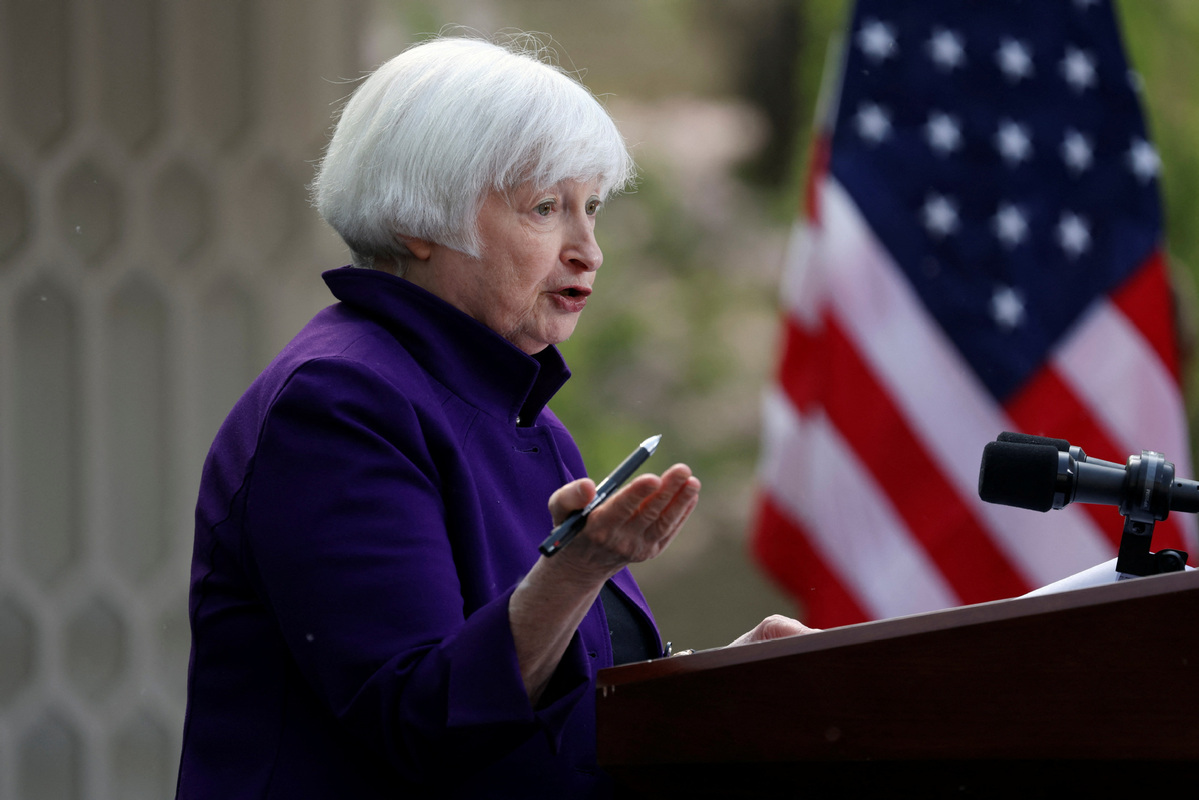Yellen's Beijing visit gives hope for future Sino-US relations
By Xu Ying | chinadaily.com.cn | Updated: 2024-04-09 11:35

The recent visit of Untied States Treasury Secretary Janet Yellen to Beijing and her subsequent press conference have generated significant interest and speculation within the global economic and geopolitical landscape. As a key figure in shaping US economic policy, Yellen's engagement with Chinese counterparts carries profound implications for the evolving relationship between the world's two largest economies.
At the outset, the very fact that the US Treasury Secretary is conducting high-level discussions in the Chinese capital suggests recognition from both the American and Chinese governments for the need for direct dialogue and engagement on critical economic issues. This visit comes at a time of heightened tensions and uncertainties in Sino-US relations, stemming from a range of factors, including trade disputes, technological competition and geopolitical rivalries. The decision to convene this press conference, therefore, represents a potentially important step towards fostering greater mutual understanding and finding common ground, even amidst the challenges.
In her remarks, Yellen is reported to have emphasized the importance of maintaining open communication channels and managing differences through peaceful means. This stance aligns with the Biden administration's stated goal of pursuing a "constructive competition" with China, as opposed to an outright confrontational approach. By striking a relatively conciliatory tone and underscoring the shared interests of the two nations, Yellen appears to be signaling a desire to stabilize the economic relationship and prevent it from further deterioration.
Moreover, the focus on economic cooperation and mutual benefit, as highlighted in Yellen's statements, reflects an acknowledgment of the deep interdependence between the US and Chinese economies. Maintaining productive economic ties, despite the political complexities, serves the interests of both countries and the global economy as a whole. Yellen's recognition of this dynamic suggests an understanding that economic decoupling or outright conflict would be detrimental to all parties involved.
However, it is important to note that the path towards sustained economic cooperation between the US and China remains fraught with challenges. Unresolved trade disputes, technological competition and geopolitical rivalries continue to create significant frictions and mistrust between the two nations. Translating the rhetoric of constructive engagement into tangible policy outcomes will require deft diplomacy, reciprocal concessions and a willingness to find mutually acceptable solutions.
Furthermore, the domestic political dynamics within both the US and China will undoubtedly shape the trajectory of Sino-US economic relations. Tensions and nationalist sentiments on both sides could complicate the efforts towards cooperation, necessitating skillful navigation by policymakers to balance national interests with the imperative for constructive engagement.
In this context, Yellen's press conference in Beijing can be seen as a strategic attempt to set the tone for future interactions and negotiations. By emphasizing the importance of open communication and mutual understanding, she is laying the groundwork for a more constructive dialogue, even as the two countries navigate their differences.
At the same time, Yellen's remarks also underscore the broader geopolitical considerations at play. The US-China economic relationship is not simply a matter of trade and investment; it is deeply intertwined with the global balance of power, technological supremacy and the shaping of the international order. Yellen's careful balancing act, between acknowledging shared interests and asserting US priorities, reflects the complex and high-stakes nature of these discussions.
Looking ahead, the success or failure of these efforts to stabilize Sino-US economic relations will have far-reaching implications not only for the two countries but also for global economic order. Policymakers on both sides will need to demonstrate a willingness to compromise, while also safeguarding their respective national interests. Fostering a constructive and mutually beneficial economic relationship between the US and China will require navigating a delicate path, one that prioritizes pragmatism, open dialogue and a recognition of the interdependence that binds the world's two largest economies.
The US Treasury Secretary's press conference in Beijing represents a significant development in the ongoing efforts to manage the complex and consequential economic relationship between the United States and China. While the path forward remains challenging, Yellen's emphasis on open communication, mutual understanding and the pursuit of shared economic interests suggests a recognition of the critical importance of maintaining a stable and cooperative framework. The ability of both nations to build upon this foundation and translate rhetoric into tangible outcomes will be vital in shaping the contours of the global economic landscape in the years to come.
The author is a Beijing-based commentator. The views don't necessarily reflect those of China Daily.
If you have a specific expertise, or would like to share your thought about our stories, then send us your writings at opinion@chinadaily.com.cn, and comment@chinadaily.com.cn.
























